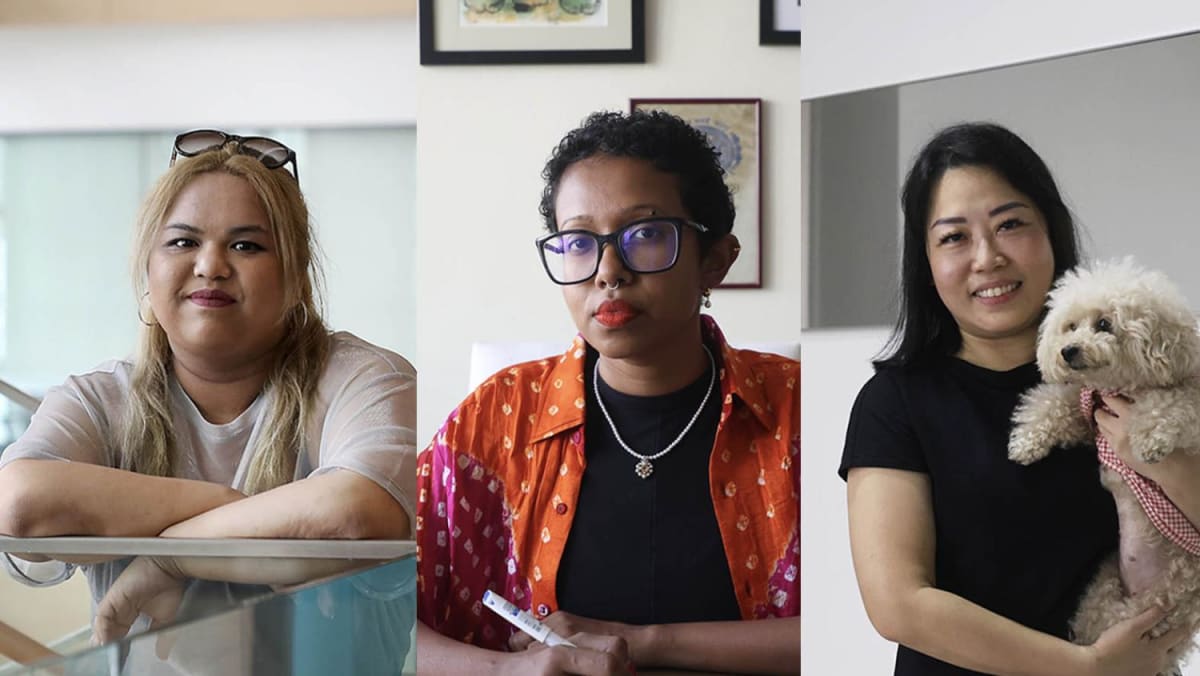Cancer and neoplasms
The Big Read: For young adults with cancer, battling an ‘old person’s disease’ is a lonely journey
According to a spokesperson from the NCCS, the cost of cancer treatments such as chemotherapy and radiotherapy can vary greatly, depending on the type and stage of cancer.
For Ms Hoo, each chemotherapy session she attended in 2016 to treat her breast cancer cost more than S$2,000, and her mastectomy and breast reconstruction surgery cost about S$100,000.
All in all, she estimated that the total bills incurred from her initial diagnosis to recovery — comprising blood tests, ultrasounds, lab scans and consultations among other things — added up to about S$200,000.
These fees were eventually covered by her insurance company, though Ms Hoo had to first borrow money from her family members as well as banks in order to pay for them first.
WHAT CAUSES CANCER IN YOUNG ADULTS?
In Singapore, the proportion of younger adults diagnosed with cancer has been dropping consistently since the Singapore Cancer Registry started collecting data in 1968.
From 1968 to 1972, those aged 29 and under accounted for 7.2 per cent of all patients diagnosed with cancer. The figure dropped to 2.1 per cent for the period of 2017 to 2021.
Singapore’s median age at cancer diagnosis therefore increased from 58.7 to 66.4 years old.
In the period of 2017 to 2021, for females across all ages diagnosed with breast cancer, thyroid cancer and lymphoid neoplasms — which includes lymphoma — the survival rate five years following diagnosis stood at 82.5, 88.8 and 60.9 per cent respectively.
For males, three out of the 10 most frequent incident cancers were prostate cancer, colon and rectum cancer and lung cancer — and the survival rate five years following diagnosis of these cancers were 89.0, 63.2 and 20.3 per cent respectively.
Overall, the five-year age-standardised relative survival rate for all cancers — referring to the average rate of survival of cancer patients of all ages up to five years upon diagnosis — had improved significantly from the period of 1973-1977 to 2017-2021.
It moved up from 13.2 per cent to 55.4 per cent, and 28 per cent to 63 percent for males and females respectively.
The registry noted that females were observed to consistently have a higher survival rate compared to males throughout this period.
With statistics from the registry showing a rise in overall cancer incidences every five-year period and worldwide studies indicating a concerning trend among younger adults, medical professionals warn that cancer should not be perceived to be an old person’s disease.
So, what causes cancer, and what can young adults do to minimise their chances of getting it?
Dr Pang of OncoCare said that smoking and excessive alcohol consumption increase the risk of developing cancers uniformly in most countries, including Singapore.
Smoking causes about 20 per cent of all cancer deaths, while the combination of smoking and alcohol consumption increases the risk of oesophageal cancer by close to 40 times.
Regular exercise, alongside wise dietary choices and the maintenance of a healthy body mass index, allows one to reduce their lifetime risk of developing cancers, Dr Pang added.
Changes in lifestyle — such as an unhealthy diet, a lack of physical activity and exposure to certain environmental toxins — could also be contributing to the increase in incidence rates in cancer among young adults globally, said Dr Tanujaa Rajasekaran, a senior consultant and medical oncologist at Parkway Cancer Centre.
“Over the years, with urbanisation and economic growth, there’s been an increase in the consumption of processed foods, sugary beverages, and red meat, all of which have been linked to a higher risk of certain cancers,” she added.
When it comes to the use of vapes, medical experts are in consensus that there is no concrete evidence linking them to cancer due to the e-cigarettes being fairly “new” — though they still discourage vaping as it poses several health risks like lung infections to the user.
Citing the National Population Health Survey 2019, the MOH spokesman said that while knowledge of screening for breast, cervical and colorectal cancers is high, participation rates for cancer screening can be improved.
The spokesman added that cancer screening is heavily subsidised under the national screening programme Screen For Life, while nationally recommended screenings — including those for breast, cervical and colorectal cancers — are fully subsidised for eligible enrolees under the Government’s Healthier SG initiative.
The ministry also recommended Singaporeans to discuss with their doctors regarding the need for cancer screening based on their individual risk profile.
RIGHT SUPPORT GOES A LONG WAY
Nearly nine years after her diagnosis, Ms Faridah has found a new mission in life — to build a career around helping others, especially young people.
Once an aspiring chef, the now 26-year-old woman is currently a branch manager trainee at a government agency, while studying part-time for a post-graduate diploma in counselling psychology at the College of Allied Educators.
She told TODAY that she was frustrated at the “standard” advice that her counsellors had offered her while she was undergoing cancer treatment — to take walks in the park and to just do her best — and that she felt there was little attempt to understand her struggles.
“So I decided, oh my god, I’m just going to be a counsellor myself then,” she told TODAY in an interview at the 22nd floor of the new NCCS building on Hospital Boulevard.
While she had initially meant it as a joke, a friend encouraged her to give counselling a shot, and things eventually fell into place.
Now, Ms Faridah wants to be the counsellor to teenagers and young adults, the professional confidant whom she felt she should have had at her lowest point in life.
“You really need support… the right kind of support,” said Ms Faridah, who is currently in remission.
“If not, I don’t think a cancer patient can make it, especially at that age.”

